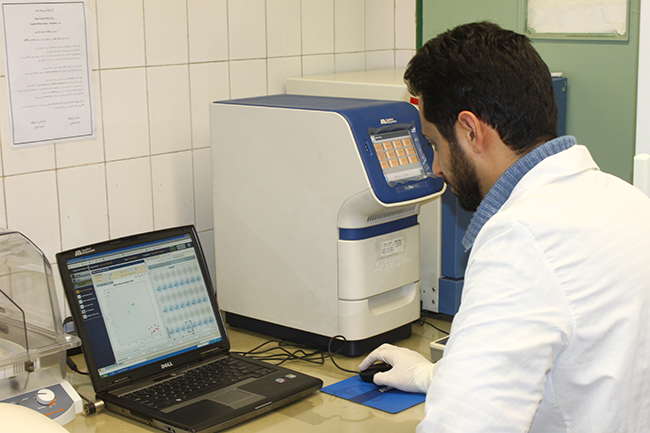
Findings from the cellular and molecular studies are intended to provide a better understanding about the aetiology and the mechanisms of disease. These findings assist to evaluate the efficacy of preventive, as well as therapeutic, nutritional interventions and eventually lead to more rational strategies for disease prevention and control.
The Cellular and Molecular Nutrition program’s strengths are the emphasis on excellence in translational laboratory research to explore metabolic pathways, gene-nutrient interactions, and mechanisms by which dietary factors influence disease processes, which provide the foundation of the field of Nutrition Science.
Program Highlights
-
Faculty explores mechanisms of obesity, diabetes, and cancer using molecular and cellular models.
-
Students present their research at a number of national and international conferences and are expected to publish their thesis and dissertation work in high-quality peer-reviewed, scientific journals.
-
Professional development is fostered through the development of general laboratory skills and state-of-the-art molecular biological techniques exploring effects on gene, protein, and metabolic expression patterns.
Research Centres and Laboratories
These days doing experiments, using the cellular and molecular model is very common in human nutrition research centres. It helps to understand the relationship between nutrition and many diseases by conducting the basic research using cellular and molecular models. Goals: - Determination of the mechanisms of action of nutrients in autoimmune diseases, cancer, obesity and diabetes - To understand the effect of nutrients on gene expression and details of signalling pathways.
The researches that are performed in the laboratory include:
1- Clinical trial of vitamin A supplementation in patients with autoimmune diseases,
2- The effects of vitamin A and D and DHA on animal models of autoimmune diseases,
3- Ex vivo and in vitro studies on cultured of immune cells obtained from autoimmune patients, including PBMCs and Neutrophils,
4- Studies on cell transcription factors gene expressions related to Th1, Th2, Th17, Treg cells, and;
5- Studies on effects of nutrients on the induction of apoptosis in cancer cells
The devices in laboratory include:
-
Incubator Co2 for cell culture,
-
Laminar hood, and;
-
Invert microscope and other equipment needed for sample preparations and handling.
Faculty Members
|
Professor - Head of Department
Email: jalalikh@sina.tums.ac.ir
Research Interests:
-
Diabetes
-
Cancer
-
HPLC Obesity
-
Cardio Vascular
-
Antioxidants
|
Professor
Email: fkoohdan@tums.ac.ir
Research Interests:
-
Nutrigenomics
-
Cardio vascular
-
Nutrigenetics
|
|
Associate Professor
Email: pishvahm@tums.ac.ir
Research Interests:
-
Animal Study
-
Obesity and nutrition based on cellular and molecular
|
Associate Professor
Email: m-mahmoudi@sina.ac.ir
Research Interests:
-
Immunonutrition
-
Ketogenic diet
-
Inherited metabolic Diseases
-
Cell culture, clinical nutrition
-
Pediatric nutrition
|
|
Associate Professor
Email: a_saedi@tums.ac.ir
Research Interests:
-
Antioxidants
-
Anti-inflammatory
-
Nutrients
-
Oxidative
-
Stress
-
Inflammatory Diseases
|
Assistant Professor
Email: mhjanan@sina.tums.ac.ir
Research Interests:
-
Vitamin D
-
Diabetes
-
Immunonutrition
|
|
Assistant Professor
Email: honarvar@tums.ac.ir
Research Interests:
-
Nutrigenomics and Nutrigenetics
|
|
Contact person
Dr. Niaz Mohammadzadeh Honarvar, PhD
Assistant Professor
Fax Number: +98-21-88955569